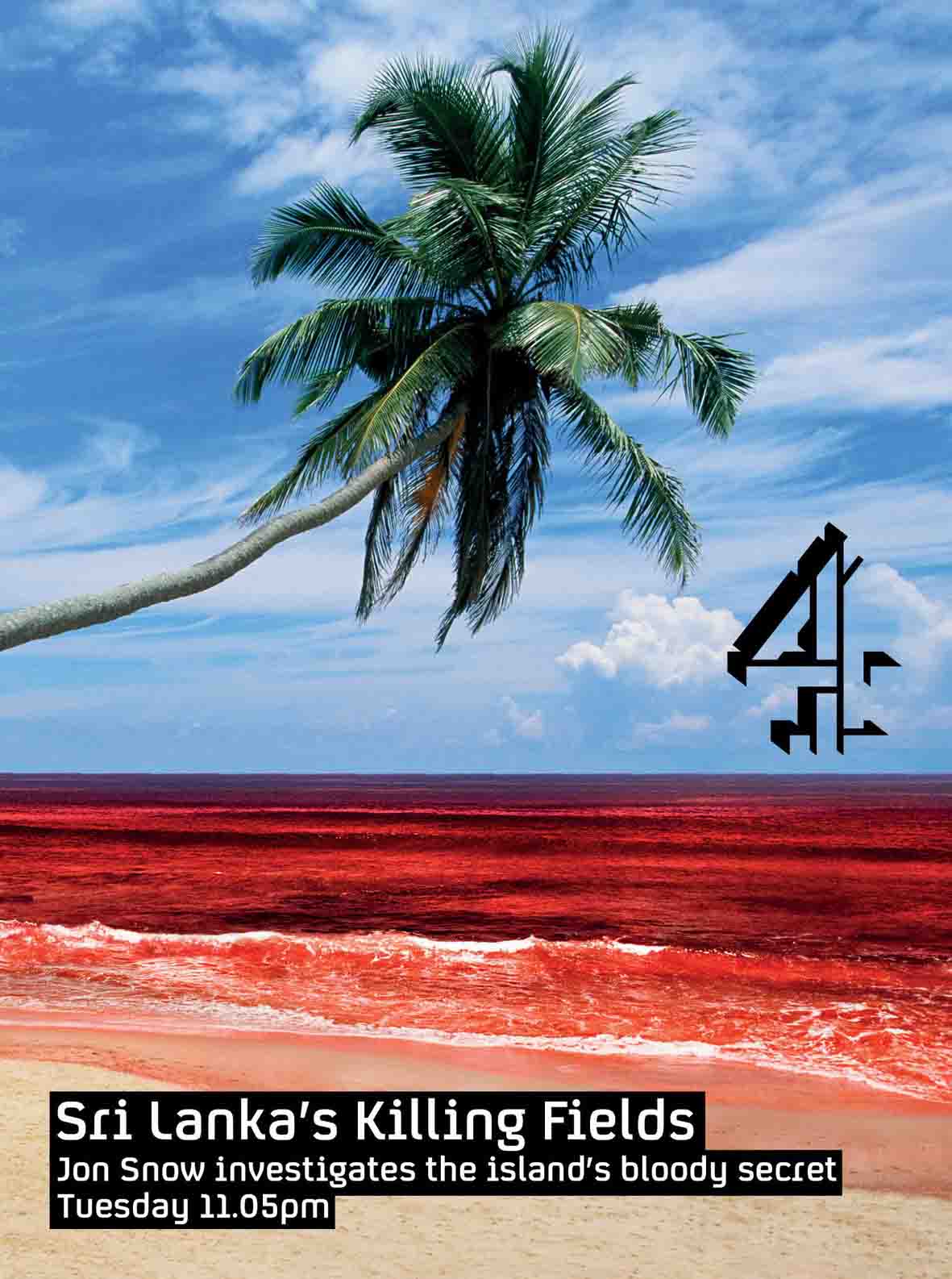TYO-UK (Tamil Youth Organisation - UK) welcomes the broadcast of the documentary ‘Sri Lanka’s Killing Fields’ by Channel 4 as a harrowing but vital insight into the truth of the final stages of the war in Sri Lanka during 2009. It is an outstanding example of investigative journalism that has uncompromisingly presented the horrors that occurred. The documentary’s irrefutable evidence of war crimes and crimes against humanity serves as a reminder to all journalists of the responsibility they carry to highlight such atrocities wherever they occur.
The horrors that the documentary exposed, were repeatedly and clearly voiced by many, including the Tamil Diaspora, and international human rights organisations, such as Amnesty International and Human Rights Watch, throughout the first half of 2009, as events unfolded. Serious concerns were repeatedly raised regarding credible accounts of daily rape, torture, abduction and mass killings of Tamil civilians. Yet sadly, these calls were dismissed as mere rhetoric and propaganda.
In 2009 the Tamil Diaspora took to the streets around the world, including Britain, calling for international intervention to stop the slaughter of Tamils in the North-East of Sri Lanka, but their calls were ignored. The UK and US government did little save attempting to placate our desperate pleas with public statements. The United Nations, which should have been responsible for investigating the claims, dismissed reports by its own officials in Sri Lanka that tens of thousands of civilians were being killed in targeted shelling of civilian areas, including hospitals. All the while, as ‘Sri Lanka’s Killing Fields’ showed, the UN monitored the killings of civilians in no-fire zones using satellite technology.
It is a damning indictment of the world’s failure to act, that the UN, the governments of the US, UK and EU members, not only knew about these atrocities, but effectively endorsed and funded it.
TYO UK wishes to draw particular attention to the actions of the UK government, which during the final three years of the war, approved arms sales of more than £13.6 million to the same regime that now stands accused of mass war crimes against the Tamil civilians. In fact Britain still continues to fund the Sri Lankan Government and military, and thereby the oppression of Tamils, in the guise of supporting rehabilitation. This week the British High Commission in Colombo announced £500,000 would be handed to the Sri Lankan military to facilitate ‘reintegration’. In Sri Lanka’s Northeast, as with many other civilian duties, this is performed under the authority of the same Sri Lankan Army which executed hundreds of civilians and POW’s, and killed thousands more through targeted shelling of civilian places.
More than two years after the horrific massacre of Tamils in Mulliyavaikal, there has been no significant progress on addressing the issues of accountability and justice. A UN Panel of Experts released in April a damning report, detailing the ‘credible allegations’ of war crimes, including, specifically, the targeting of no-fire zones, hospitals and schools – areas that the Sri Lankan government itself designated as civilian safe zones, asking people to congregate, before indiscriminately shelling these very areas. Two and half months after the release of the report, the United Nations has still not taken any decisive action. The report called for an international inquiry to investigate allegations of war crimes, yet the UN continues to ignore the advice of its own experts.
As the report categorically states, this massacre was the result of ‘systematic’ and ‘repeated’ shelling of Tamil civilians. The Eelam Tamil nation has long argued that this persecution of the Tamils is not the action of one ruthless regime but of successive governments, with the backing of the majority Sinhala population. The Sri Lankan government’s blanket dismissal of charges of civilian casualties and its absolute refusal to cooperate with an international investigation, has been almost unanimously supported and endorsed by the opposition political parties, the mainstream Sri Lankan media and the wider Sinhala public.
TYO UK joins the Eelam Tamil nation worldwide, in stating that this massacre was an intentional attempt on part of the Sri Lankan state to annihilate the Tamils in the Vanni, i.e. genocide. Crucially, persecution of Tamils in the North-East continues today, as ‘Sri Lanka’s Killing Fields’ clearly shows. Sri Lanka’s much proclaimed ‘peace’ has not brought equality, safety, justice or freedom to the Tamils. In fact it has only heightened the culture of brazen impunity with regards to persecution of Tamils.
After two years Sri Lanka has proven their expected unwillingness to take any sort of meaningful action to address the legitimate grievances of the Tamil people and hold an independent inquiry into the conduct of the Government and its armed forces during the war.
It is now in the hands of the international community to bring justice to the victims.
Moreover, in such circumstances, the situation for Tamils is terrifyingly precarious and continues to deteriorate on a daily basis. In a state where over 130,000 Tamil civilians remain unaccounted for, UK’s decision to deport Tamils to Sri Lanka is wholly unacceptable and in clear violation of Britain’s responsibility to protect those in need of refuge.
We therefore call on Britain to take decisive action to uphold international law and ensure justice and accountability with respect to Sri Lanka’s war crimes. To this end, we call on Britain to:
• Take the lead in pursuing an international investigation into allegations of war crimes and crimes against humanity in Sri Lanka
• Seek the suspension of Sri Lanka’s membership of the Commonwealth
• Impose sanctions on Sri Lanka, including in the fields of arts and sports, until the government there cooperates with international investigations, and
• Immediately cease the deportation of Tamil refugees to Sri Lanka

